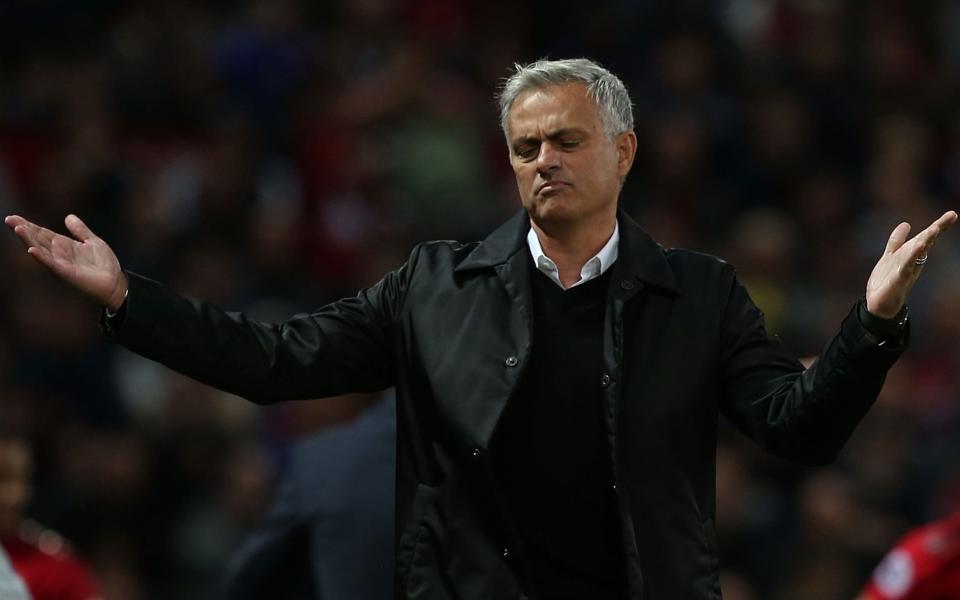Manchester United are a deal-making factory gone wrong, they need bigger changes than sacking Jose Mourinho

Manchester United should be taught in business schools around the world as a cautionary tale about what happens when you replace an identity with a brand, and turn something that lifts the heart into a power play that pains the soul.
In their glory years, United were a spectacle, a treat for the eyes, a grand parade that was ultimately about the football, the drama: a point Sir Alex Ferguson was always keen to impress on David Beckham when he became famous far beyond Old Trafford. United were a hive of energy and enthusiasm. They were a cult. They always laid on a show. That restlessness and showmanship were the beacon in a metropolis now dominated by Manchester City.
And now, you watch United because you have to, or you support the opposing club, or for schadenfreude. You lurch away from the television screen mystified, listless, asking how you could have spent those two hours more productively. You see demoralised players with no pattern of play or conviction. Marouane Fellaini tries a shot and knocks a steward in a high-viz jacket off his stool – by the corner flag. United are feeble, aimless, going through the motions while the rest of the elite disappear over the hill.
Until his sacking after the miserable defeat at Liverpool, you had to endure the daily tedium of Mourinho’s politicking, his self-absorption. Amid all the great questions of our age, football woke to ask itself, “What has Mourinho said today,” as if his obvious resentment towards the Old Trafford board possessed great political or philosophical depth, when it was really just a bad marriage waiting to be put out of its misery.
String everything together from Ferguson’s retirement after a 5-5 draw at West Brom (even his final scoreline told a story) to United’s inability to tolerate Mourinho for another minute and you see a great football club enfeebled, a deal-making factory gone wrong. One bad decision leads to the next because the people making the footballing decisions are either unqualified to make them or making them for the wrong reasons: for commerce, rather than football.
The managerial sequence has been this: David Moyes was appointed as a Ferguson mini-me because the star names on United’s list were unavailable. So they hired a coach who was due for a promotion but made the mistake of trying to Evertonise a Champions League operation, and paid the price when the players disengaged. Next came a didactic European A-lister from another era (Louis van Gaal) who attempted to make United a slow possession-based side while also making questionable signings.
With two wrong turns, what do you do? Hire a disputatious ‘proven winner’ to get the trophies rolling back in. A proven winner with a history of conflicts with owners and directors but not much interest in academies and youngsters: the lifeblood of the Matt Busby and Ferguson eras. In mitigation, Mourinho won the two lesser trophies in his first campaign – the League Cup and Europa League – and cajoled an average (by their standards) team into second place in the league in May, all the while picking on individual players publicly, resisting the appointment of a sporting director who would have counter-balanced Ed Woodward’s influence over transfers, and turning the first XI into a cure for insomnia.
Predictably, the immediate post-sacking hoo-ha revolved around Mourinho’s ‘personality’ and how he marginalised and emasculated Paul Pogba. Who could fail to be captivated by a feud between a narcissistic manager and an exiled £90 million World Cup winner? These quasi father-son dynamics are compelling, especially when the player has Instagram and Twitter accounts to provide a gnomic running commentary, and the manager’s minder is super-agent Jorge Mendes, no beginner in the art of news management (see his statement about Mourinho being happy at United, which translated as – ‘you’d have to sack me, and show me the money.’)
But beyond this orgiastic analysis of personalties clashing, and Mourinho trying to protect his own reputation with relentlessly planted barbs and moans, the United power game has a darker, deeper significance. The Mourinho saga was about the only thing United had to sell, because the football sure as hell wasn’t attracting new acolytes in Los Angeles or Laos. No longer serious players in the Premier League - and the opponent everyone wanted in the Champions League round of 16 – United have reached a critical juncture in their history. Do they want to go back to being a football club with a productive youth policy, the right people in the right jobs, good recruitment and much less subservience to agents, or would they rather wait for the Glazers to sweat every drop from the brand and then move on to their next leveraged buy-out?
If the point of owning something is to earn tens of millions in dividends, salaries and share sales, as the Glazers have, while a banker (Woodward) runs the club, and the commercial department are charged with signing deals with any tyre or “paint partner” with a pulse, then the football side becomes a mere sideshow, and signs of Alexis Sanchez’s decline at Arsenal are ignored in favour of a £500,000 a week deal that sticks two finger up to Manchester City.
Everything is reactive, made up on the hoof, because the football culture of the club has been dispensed with. In theory the owners could give the club back to football, install a proper structure and restore the primacy of the playing side. Or they could just hire a new bloke in the summer, send Woodward a magnum for making the balance sheet look so good and wait for a sovereign wealth fund to take it off their hands. Place your bets.

